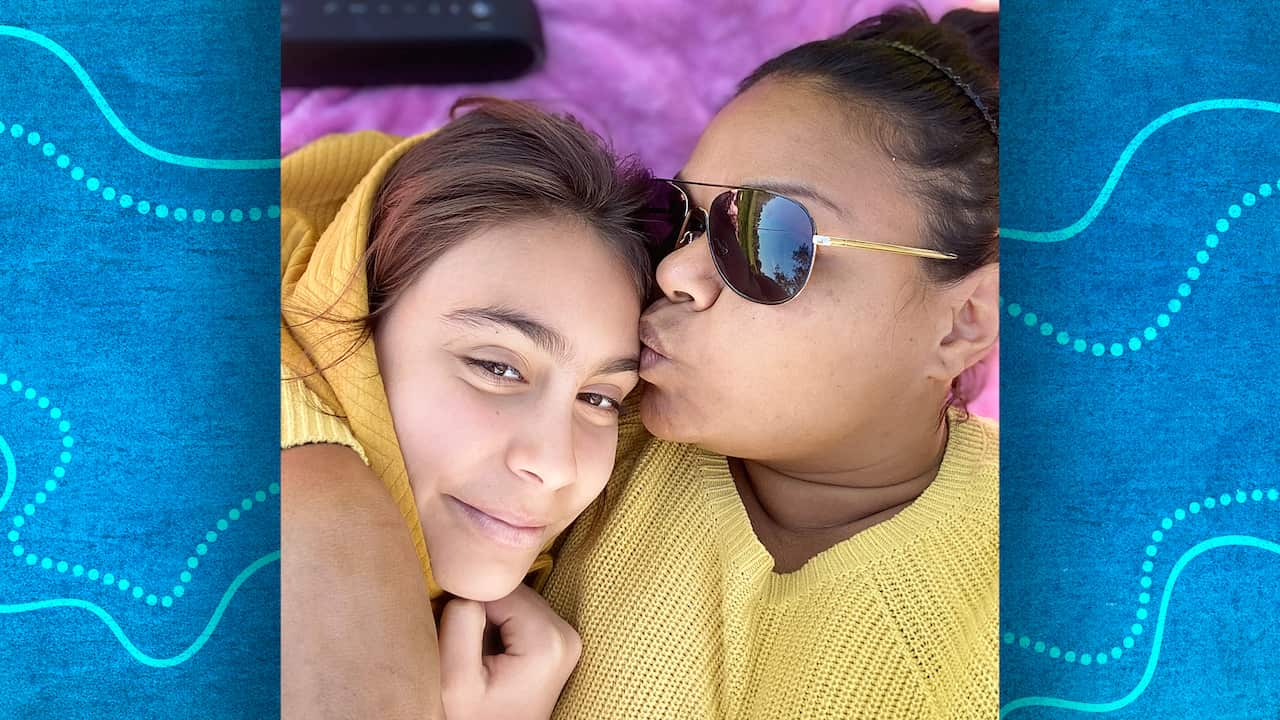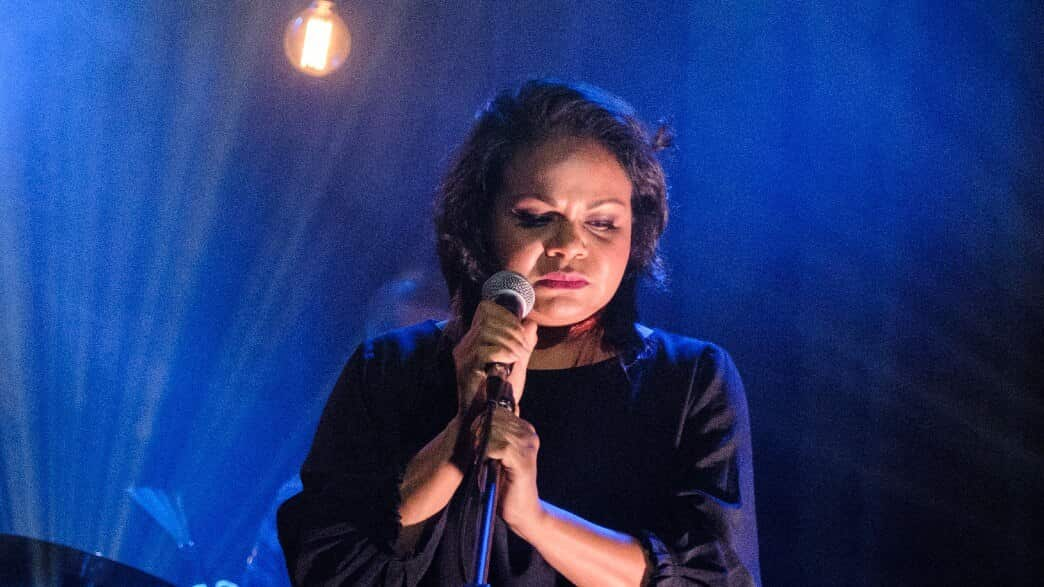Ursula Yovich is speaking of legends.
The celebrated actor, writer and singer (who many would say is a legend herself) loves telling them to her daughter, Djarla, especially tales of the now-teenager's childhood.
"I think every kid loves hearing stories about themselves," she says.
"Especially from when they were little. It's the sense of awe about their own past, that they were surrounded by so much love during that time."
The past is on Yovich's mind. She's about to open a new play at Sydney's Ensemble Theatre that delves deep into the subject.
Written by Gumbaynggirr woman Brittanie Shipway, 'A Letter for Molly' follows the lives of three generations of First Nations women.
"It's a story lots of women will connect with," she says, "of the whole mother/daughter, and grandmother/granddaughter relationship.
"It's also about legends, family legends: how stories are remembered differently by different generations."
It is also, Yovich explains, an exploration of choice.
"That is woven throughout the whole play: what kinds of choices did women, especially Aboriginal women, have and what choices were taken from us?
"And how has that changed through the generations?"

With daughter Djarla. Source: Supplied
'It's something I didn't grow up with'
Yovich says the play instantly drew her in, the subject matter a source of fascination that hit close to home.
"One of the reasons why I really like this piece is discovering the relationship between the mothers and their daughters.
"It's something that I didn't grow up with."
Yovich's parents separated while she was still young. Her youth was spent between Darwin and Maningrida, where her mother's family lived, but it was her father, a Serbian immigrant, that raised her and her three siblings.
"And so there's always this kind of yearning, where I go 'I know these women, but I don't know them as well.'"
Yovich says she has sought out several mother figures in her life, women she holds in high regard.
"I don't put them on pedestals, because we're all so flawed, but there are qualities in these women that I've admired and try to emulate.
"And there's one woman that I kind of call mum anyway, who's one of my best mate's mother, so I just claimed her!"
Deep love and understanding
Yovich's mother died in 2013. Although the two maintained a connection throughout her life, the difficulties of the relationship remained present.
But she says the anger she once felt has lessened with time, and becoming a mum herself has cast a new light on her mother's choices.
"Her not being there... I don't hate this woman. I have a deep love and a deep understanding for her," she says.
"I don't know exactly what was going on in her mind. But you have a fair idea as you get older, and you understand what they experienced and what they went through.
"The kinds of decisions they made in their life is really centered around how they were brought up and what kind of traumas they carry."
Yovich says intergenerational trauma is a central theme of 'A Letter for Molly', and that choice plays a role in each person's inheritance of that.
"What traumas are carried through, and passed on to the next generation?
"And when do we make a choice to say, 'You know what, this stops here. I'm starting something new'?"
It's a process that is made much easier by the acceptance she has found for the choices her mother made.

Having a daughter gave Ursula Yovich a deeper understanding of her own mother, and also of herself. Source: Peter Rubie
Passing on the legends
She says an incident that happened while her mother was still alive gave her an insight to the woman who seemingly could not fill the role of a traditional mother.
"When I did connect with my mother many years later, she carried in her purse old newspaper clippings.
"They were articles from when I started to make a name for myself."
In the way that life's small gestures convey volumes, those clippings came as messengers with answers to old questions.
They were the tokens, carried close and dear, of the particular love Yovich's mother held for her, the only she could offer.
"I knew then that her ability to give love was different from what I needed as a child. And it was hard to start giving that love once I became an adult."
It was part of a picture she built up of the woman who had been absent for her when she most needed it.
The more complete that picture became, the better Yovich came to appreciate her family, herself, and the choices they all had made.
"As you get older, the understanding of your mother, and your mother's mother, and how you came to be in this world... you become more aware of why you behave in a certain way or why you do certain things."
Her upbringing is now part of the legend she now chooses to tell Djarla.
"I don't keep my upbringing a secret to her.
"I just say 'You know, there's differences in how I was raised and how you're being raised. And you have to understand that you have this privilege.'"
As for the more immediate choices: this Mother's Day, Yovich will be watching Djarla play her first ever game of AFL, then a screening of Leah Purcell's 'The Drover's Wife'.
"A chill family day I think," she says with eager anticipation.
It's a choice this legend can feel comfortable with.
Share



